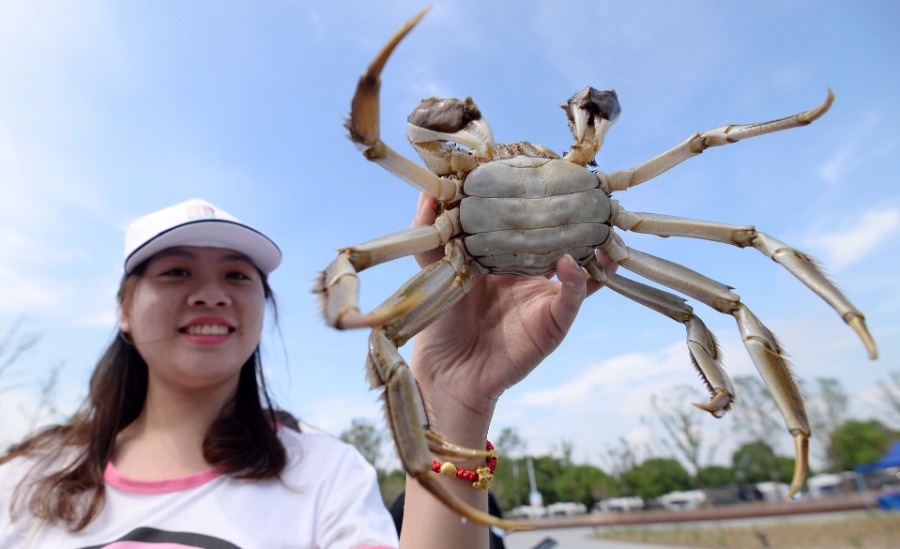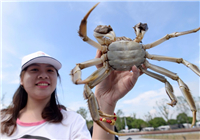
NANJING-Yangcheng Lake in Jiangsu province, renowned for producing China's best freshwater crabs, introduced intelligent logistics and blockchain technology this year to ensure freshness and authenticity of the seasonal delicacy.
It's a longtime custom for Chinese to eat crabs in autumn, when the meat is at its best, especially during the Mid-Autumn Festival, on Sept 24 this year, and the holidays that started with National Day on Monday.
The lake's palm-sized crabs have gained nationwide popularity.
Thanks to climate-controlled delivery, customers in 173 cities nationwide can now have fresh crabs in one or two days.
"As soon as we catch the crabs, they are packed up and delivered to customers via the effective cold-logistics network," said Bian Nong, vice-president of Suning.com, one of the farmers' retail partners.
Customers can also scan the code on the products to verify their authenticity and find detailed information.
The traceability and anti-counterfeiting system allows buyers to track their purchase back through the production chain, including cultivation, processing, transportation, distribution and retailing.
This year's crab output from the lake is estimated at around 1,300 metric tons, nearly 200 tons fewer than last year.
However, due to the reduction of the crab farming area to ensure water quality, the crabs were expected to be much bigger and have better flavor, producers said.
Inspection results on Sept 19 showed that the average weight increased 4.8 percent for male crabs and 8.6 percent for female crabs, according to Lu Zhirong, deputy director of the Suzhou Agricultural Commission.
At one of the breeding centers in Changzhou, Jiangsu province, crabs were fed deep-sea fish and raised in ponds with strict quality controls and abundant oxygen supplies.
The local agricultural department sends experts every year to train farmers to better apply environmental practices in the breeding process and to conduct quality tests, Lu said.






